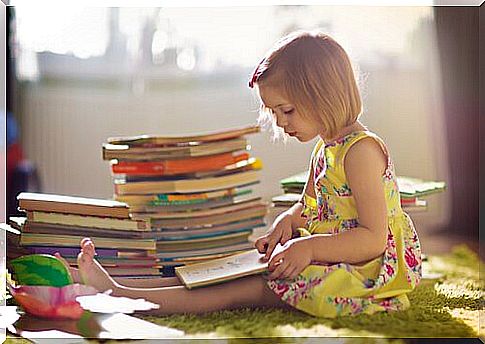How To Develop Children’s Social Skills
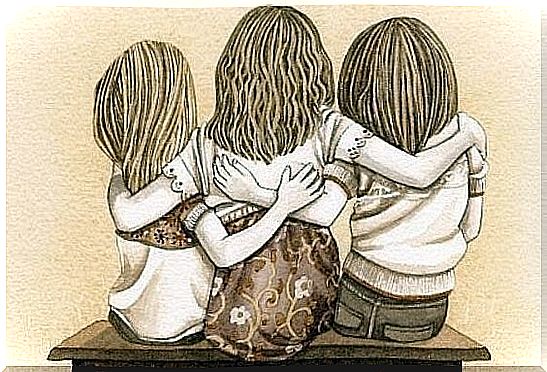
Developing correct social skills in children will not only help them build more positive relationships or interact better with others. By doing this, we will introduce them to the true basis of social and emotional learning, where empathy and assertiveness are two indisputable psychic tendons.
Now let’s ask ourselves something very simple: “How do our little ones actually learn?”. As many studies on social psychology tell us and as Albert Bandura has revealed to us through his experiences, children develop the majority of their learning by observing, imitating and interacting continuously.
All these processes bear, of course, the name of “sociability” and set up determining bases in the life of the child. Thus, depending on their quality and lived experiences, perceptions, attributes constructed and socio-emotional learning assumed, we will create healthy and effective social skills or, on the contrary, a series of deficiencies that appear to be very problematic once the stage of pre-adolescence reached.
In addition, experts in child psychology very often comment to us that the social reality of today is much more complex for children than in the past. Things weren’t so difficult for their parents. The means of communication, new technologies and the constantly changing rules in our society place our little ones on a field that seems immense to them. They don’t have a compass telling them where to go.
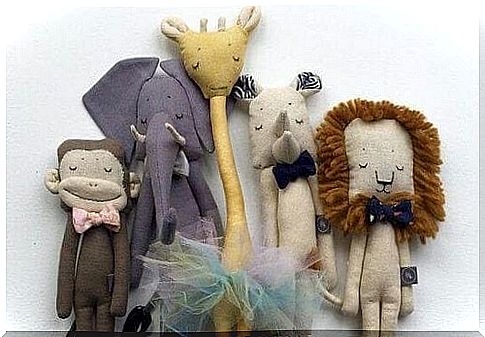
The ways we relate to and even know new people have changed, social networks or messaging services are more dynamic, offer new opportunities, are faster but lack filters, controls and sometimes , of course, are quite dangerous.
The fact that the social development of children brings together many areas and new places is a good thing. It is vital to provide them with these sufficient and necessary tools so that they can develop in an efficient and healthy way in an increasingly complex social sphere. A larger sphere but, ultimately, very precious. This is why learning social skills in children is so important.
The development of social skills in children
One of the most effective strategies for instilling social skills in children is to create “social language” from an early age. We speak above all of a type of understandable, basic and effective language that even 2 year olds will be able to understand.
It should be remembered that this age is a decisive moment in the growth of the child. He begins to claim his autonomy, to have his character and to be much more receptive to everything that is happening around him.
This social language, which will promote the early development of social faculties in children, is based on the following dimensions:
- Learn to practice active listening. We cannot speak while the other person is saying something; you have to respect periods. This is something that is difficult for children because their self-control is still limited. The best way to teach them is to lead by example: if we don’t interrupt them, they will learn not to interrupt us.
- Children need to learn to be grateful, know when and how to apologize, and include a “please” in their requests. Let us teach them the difference, either implicitly or explicitly, between a request and a requirement.
- Adequate social language also includes different “knowledge”: knowing how to say “thank you”, knowing how to tolerate, share, recognize when others are doing something good and when we are wrong.
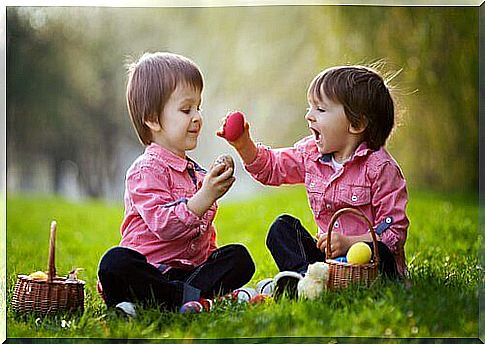
Help them have a positive image of themselves
Ensuring that our children from an early age learn to value themselves, to love themselves and to protect their rights and identity means investing in their quality of life and giving wings to their personal potential. However, how do you get there? Sometimes we want to nurture their academic skills so much and get them to be good at math or English that we completely neglect what is essential: helping them develop a positive image of themselves.
The keys to promoting good self-esteem in children
- Be their best model, be their biggest reference and a figure to emulate on a daily basis.
- Offer quality time to your children. It is not only a question of being “present”, it is also necessary that your presence be stimulating, supportive and inspiring.
- Offer them opportunities. The child who feels competent builds a correct self-esteem, day after day.
- Avoid labels at all costs, do not compare him with other children, with his siblings or with any other person. This child is unique, he is precious and able to do amazing things on his own.
- Continually value their efforts. Before resorting to punishment or negative criticism, show them the right way to do things.
Assertiveness, the key to social relationships in children
Instilling the art of assertiveness in our children must be one of our priorities as parents or educators. This dimension has a link with personal esteem but goes a little beyond the latter. It is the ability to know how to protect and claim my rights, to understand that the person in front of me deserves the same respect. It is, in the end, the healthiest substrate of our sociability and this bridge that will allow us to walk with confidence on all personal, school or professional scenes.

The keys to developing assertiveness in our children
We need to give children the right tools so that they can learn to deal with their emotions as early as possible. They will thus realize that rage or anger, for example, must be controlled in order to be expressed correctly and intelligently.
- Support children’s initiatives. As long as they are acceptable and safe, children need to feel comfortable getting involved in new activities, new projects and new dreams. It is very healthy for our children and adolescents to see themselves as worthy and capable of having their own goals and objectives. It does not matter whether they fail or make a mistake: this learning is necessary to foster their assertiveness.
- Get the child to be assertive early on at different levels. Allow him, for example, to buy that train ticket himself when you go to the station to pick it up. Motivate him to go and play with these children he does not know at the park, to ask his teacher for help when he / she does not understand something …
- It is always helpful to give them some “pointers” on how to protest or defend themselves when something does not feel right to them. A good way to do this is to foster democratic and constant dialogue at home, where we all have the right to speak, to be listened to and respected.
Learn to live together and appreciate social relationships
There are few gifts as precious, for a person, as that of enjoying their childhood with these first friends, these first companions / companions of adventures, these wonderful accomplices in the world. moment to make fabulous discoveries. Fostering these links and their quality, from an early age of children, is also our responsibility; we thus strengthen the development of their social faculties.
- We need to teach them models of respectful relationships, where cooperation, respect, empathy and complicity will help them build more positive bonds.
- In addition, to know how to cohabit in harmony with the rest of the people, they must identify and know how to react to these aspects which hinder cohabitation. An example is undoubtedly that of aggressive language, contempt, offense, mockery, criticism.
- As parents or educators, we also need to support the friendships our children build. We need to be that close person they can go to when a problem, conflict, doubt, or concern about their friends arises.
Learn to resolve conflicts
Life is not a straight line; it is not simple, it sometimes hurts and it is extremely confused. We would no doubt like to remove, one by one, all these difficulties, all these problems and all these conflicts that may appear in the lives of our little ones. Now, if we were to do this, we would not be educating a child to enable him to live in society: we would be shaping a person to live in an aseptic and unreal environment.
Since at some point in their life they will have to face these contradictions that are common in humans, it is necessary that we offer them strategies for positive things to arise. Here are some keys.
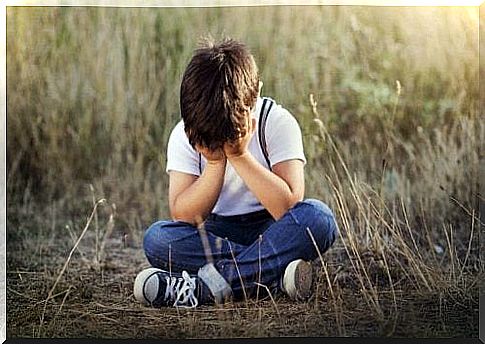
- Help him develop good self-confidence. He must feel sure of himself when expressing himself, acting, interacting with someone who disagrees with him.
- Let us instill in him values of non-violence. Aggression, screaming or any other type of expression that has a link with violence does not solve anything. On the contrary, they only increase it.
- Let’s teach him some simple standards to start controlling his emotions.
- Dimensions such as assertiveness, tolerance and good decision-making are strategies that the child must consolidate over time to feel more effective when resolving conflicts.
- On the other hand, skills such as a sense of humor or creativity are very effective tools for allaying conflicts and finding much more rewarding ways out.
In conclusion, we should also keep in mind that we do not give enough importance to the social capacities of children at an early age. However, at the end of primary school and especially during adolescence, problems of socialization, suffering and conflicts will appear quickly.
The correct development of social skills in children is not just about “offering strategies” such as giving vitamins, an instruction manual or a gift that cannot be overused. It is above all a question of guessing their needs and it is there that we need the collaboration of all the collectives. It is therefore imperative that families are in contact with teachers (the opposite is also valid) to promote the development of children’s social skills. We must be more sensitive to their internal world where, very often, the deepest deficiencies end up being expressed in the least appropriate way …
Social skills in children are of paramount importance. Let’s give them the value they deserve.
